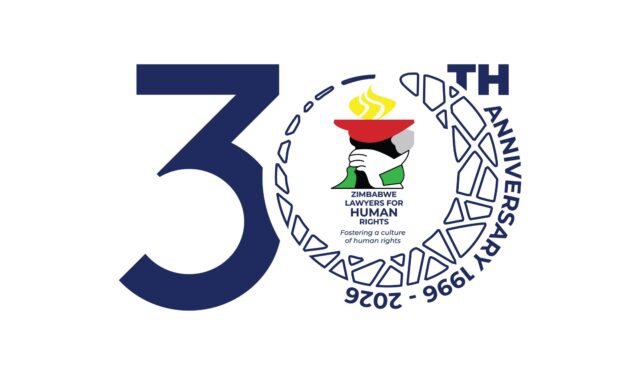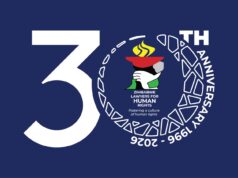ON this Africa Human Rights Day, Zimbabwe Lawyers for Human Rights (ZLHR) joins the rest of the continent in commemorating the foundational values of dignity, equality, and justice enshrined in the African Charter on Human and Peoples’ Rights (Banjul Charter).
Thirty-nine years ago, on 21 October 1986, the Charter entered into force, establishing the cornerstone of the African human rights system. Zimbabwe was among its early signatories, having ratified the Charter in May 1986, thereby undertaking binding obligations to respect, promote, protect and fulfil the rights guaranteed therein.
This year’s commemoration carries special significance, as it unfolds under the African Union’s (AU) 2025 theme, “Justice for Africans and People of African Descent Through Reparations”. The theme underscores the imperative of addressing historical injustices such as slavery, colonialism, apartheid, and systemic discrimination and their enduring legacies. For Zimbabwe, this theme resonates profoundly, serving as a powerful reminder of the need to confront both historical and contemporary forms of injustice. As a nation that endured colonial dispossession and continues to grapple with structural inequalities and repression rooted in that history, Zimbabwe must urgently integrate reparatory justice and historical redress into its governance and development frameworks. True reparations must extend beyond acknowledgement of the past to addressing present-day injustices and ensuring non-recurrence.
Under Article 1 of the Charter, states are legally obliged to give effect to the rights it guarantees through appropriate laws and policies. Yet, many continue to disregard these commitments. For Zimbabwe, which has endured decades of socio-political and economic challenges rooted in colonial dispossession and poor governance, the theme of reparatory justice carries renewed urgency. The vestiges of colonial rule remain visible in restrictive laws that silence dissent, arbitrary arrests, intimidation of activists and journalists, suppression of peaceful assemblies, environmental degradation, exploitative mining practices, forced evictions, internal displacements, and the plunder of natural resources. These practices, coupled with unequal wealth distribution and entrenched impunity, continue to undermine social justice, inclusive development, and the rule of law. Reparatory justice for Zimbabwe must therefore encompass structural reform, accountability, and meaningful participation of citizens in governance.
This year’s Africa Human Rights Day commemoration takes place against the backdrop of the 85th Ordinary Session of the African Commission on Human and Peoples’ Rights (ACHPR). The convergence of these two events highlights a moment of reflection and reckoning, especially for governments whose historical and current policies have perpetuated exclusion, inequality, and impunity. The timing also underscores the dual focus of the African Commission, celebrating the continuing legacy of the Charter and while rigorously evaluating the human rights records of African governments.
In this context, the Commission reviewed Zimbabwe’s 16th Periodic Report (2019–2023) and Second Report under the Protocol on the Rights of Women in Africa (The Maputo Protocol) in May 2025, issuing Concluding Observations and Recommendations that implored the government to constitutionally abolish the death penalty, ratify the Convention against Torture and adopt a specific law to criminalise torture, strengthen protections for human rights defenders (HRDs), ensure freedom of expression and assembly, and fully implement gender equality and women’s rights. These and other critical recommendations form a concrete agenda for Zimbabwe to close the gap between its continental commitments and realities on the ground.
ZLHR would therefore like to seize the occasion of this Africa Human Rights Day to reiterate that this day is both a celebration and a call to action. In this spirit, we urge the Government of Zimbabwe to implement the following measures to fulfil its obligations under the Charter:
- Implement all recommendations that have been made by the ACHPR in its Concluding Observations and Recommendations following Zimbabwe’s 16th Periodic Report (2019–2023) and Second Report under the Protocol on the Rights of Women in Africa (The Maputo Protocol).
- Implement all the decisions of the Commission in finalised communications concerning Zimbabwe.
- Repeal the Private Voluntary Organisations (PVO) Amendment Act, cease the crackdown on civil society organisations and engage civil society meaningfully in policymaking and reporting processes under the Charter and its protocols.
- Adopt legislation to domesticate the United Nations Declaration on Human Rights Defenders.
- Repeal repressive legislation such as the Maintenance of Peace and Order Act (MOPA), which contains provisions reminiscent of colonial-era laws used to suppress dissent and restrict fundamental freedoms.
- Respect, protect and promote the fundamental freedoms of association, assembly, and expression;
- Ratify the UN Convention against Torture and its Optional Protocol; the International Convention for the Protection of All Persons from Enforced Disappearances and its Optional Protocol; and the Optional Protocol to the International Covenant on Civil and Political Rights.
- Adopt national legal instruments to criminalise torture and enforced disappearances.
/ENDS/
Zimbabwe Lawyers for Human Rights
Kodzero/Amalungelo House
No. 103 Sam Nujoma Street, Harare, Zimbabwe
Phone: (+263 8677005347, +263 242 764085/705370/708118
Email: info@zlhr.org
www.zlhr.org.zw
FOLLOW US:@ZLHRLAWYERS ON X | ZIMBABWE LAWYERS FOR HUMAN RIGHTS
ON FACEBOOK



